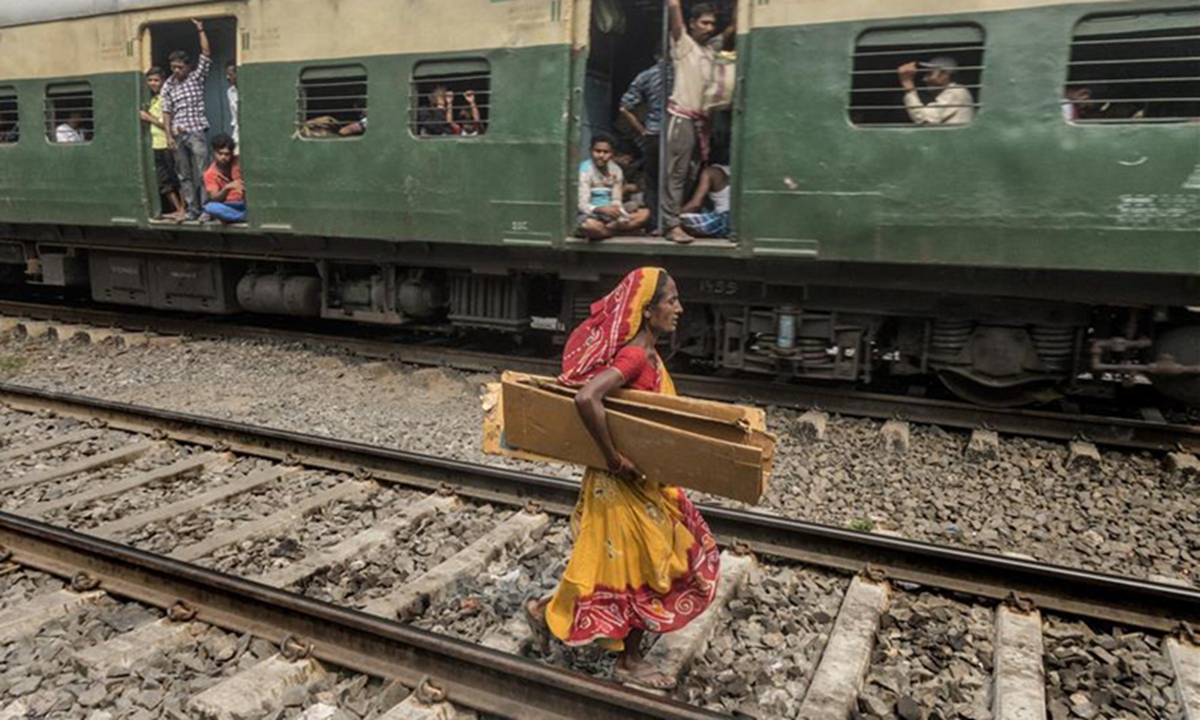India's railway self-reliance needs realistic bottom line
Source: Global Times Published: 2020/8/23 21:39:49

Photo: Xinhua
The Indian Ministry of Railways announced recently that it has canceled the tender for manufacturing some semi high-speed Vande Bharat trains, and a fresh tender will give "Preference to Make in India."
As a Chinese joint venture, CRRC Pioneer Electric (India) Private Limited was the only foreign bidder in the tender, according to media reports, with this cancellation marking the latest move by India to exclude Chinese companies and joint ventures with Chinese partners from participating in its infrastructure construction. Previously, amid the border tensions between the two neighbors, senior Indian officials stated on various occasions that the country would ban Chinese companies from highway projects and will stop power equipment imports from China.
The Indian authorities may sincerely believe that rejecting Chinese firms will offer more opportunities and support to domestic companies, but such a move will actually only slow down the pace of the country's infrastructure improvement, which is urgently needed for its manufacturing development. While the Modi government's eagerness to promote self-reliance is understandable given the country's economic stagnation, mindlessly catering to the ultra-nationalistic sentiment at home is a misguided way to support domestic industries, which may hurt the country more in the long run.
For a long time, poor infrastructure has long been a bottleneck for India's economic development, especially in terms of manufacturing capability. Take the railway system as an example. It is no secret that India's colonial-era rail network, one of the world's largest, is aging and in urgent need of upgrades. Despite some improvement in recent years, the railway system still faces problems like low speeds and safety issues. The Indian Railways said last week that around 29,000-30,000 deaths have occurred due to "trespassing and other untoward incidents" on its premises in the past three years.
There is no denying that India has ambitious plans to improve its outdated infrastructure. Last year, the country planned to spend $1.4 trillion on infrastructure in the next five years as part of its efforts to become a $5 trillion economy by 2024. However, with its foreign debt burden at record levels, the Modi government cannot afford to spend big on infrastructure projects at all. Moreover, India's engineering technology and capability fall short of the country's needs. Simply put, it is impossible for India to upgrade its infrastructure without seeking international cooperation.
India's political elite needs to recognize that encouraging Make in India doesn't necessarily represent a divorce from reality and international cooperation. If they cannot get rid of the old thinking that adheres to the supremacy of domestic businesses, India's infrastructure will not see any substantial improvement, and its economy will continue to be shackled.
Posted in: GT VOICE